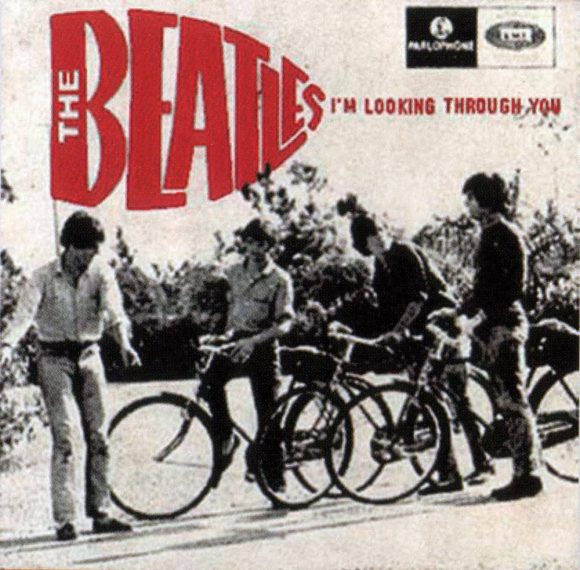‘I’m Looking Through You’ was inspired by a disagreement between Paul McCartney and Jane Asher, and was written at her family home in Wimpole Street, London, where McCartney had his own room in which to compose and sleep.
 Continue reading on Beatles Bible →
Continue reading on Beatles Bible →I’m Looking Through You is a Paul McCartney song from the Rubber Soul album. It has the crisp, clean production and cheerful, upbeat sound that characterises that album. So precise that were later imitations that you could be forgiven for thinking that you’re listening to the Monkees in 1966. But the superficially sunny tone masks a surprisingly cold and dismissive lyric about “an argument” between Paul McCartney and his long-term girlfriend Jane Asher.
Paul said it was about “an argument”, but it reads like a much deeper and more permanent disconnection, and it’s a one-sided take in which the protagonist puts all the blame on the other person. McCartney told his biographer Barry Miles (this is in the 1990s):
“I would write it out in a song and then I’ve got rid of the emotion. I don’t hold grudges so that gets rid of that little bit of emotional baggage.”
Except course the song is still there, kind of like a grudge.
Of course they were going through a very intense relationship in the spotlight; Paul was one of the most famous people in the world. Though much less famous, Jane was a successful actress who expected to have an independent career. (Think Prince Harry and Meghan Markle). They were living with Jane’s parents, who had become very important in Paul’s life too. And they were still very young (Paul was about 23). At a time of life where you might hope to argue, break-up and make-up in private, they were tied together with deepening family connections, in public.
In this instance, the couple evidently found a way to bury their differences, at least temporarily. Jane’s mother Margaret had found Paul a flat in Cavendish Avenue. The couple moved in in 1966. They were engaged in 1967 but finally broke up in 1968. Margaret Asher visited the Cavendish Avenue flat to collect Jane’s belongings.
At this point it is very tempting to dig into what this song reveals about McCartney’s character. He is a genuinely positive person, a natural PR expert, but guarded. There are patterns. I think the idea of “getting rid of” emotions, and the burden of “emotional baggage” is at the heart of it. However, since both people are alive and have been very dignified in not talking about their relationship in the decades since, I think it would be a bit too parasocial and pseudo-psychoanalytical to get deeper into it. I certainly wouldn’t want some stranger delving into the psychology of my first break-ups 60 years later. Instead, let’s give a shout out to all “not-quite-in-law” families: parents of people in their late teens and early twenties who welcome their adult children’s partners into their homes and lives. It’s an important role that our culture generally overlooks. I’ve been on both sides of it, and the relationships and break-ups can be significant for everyone involved.

